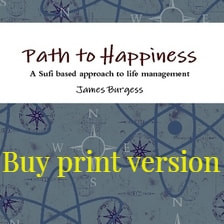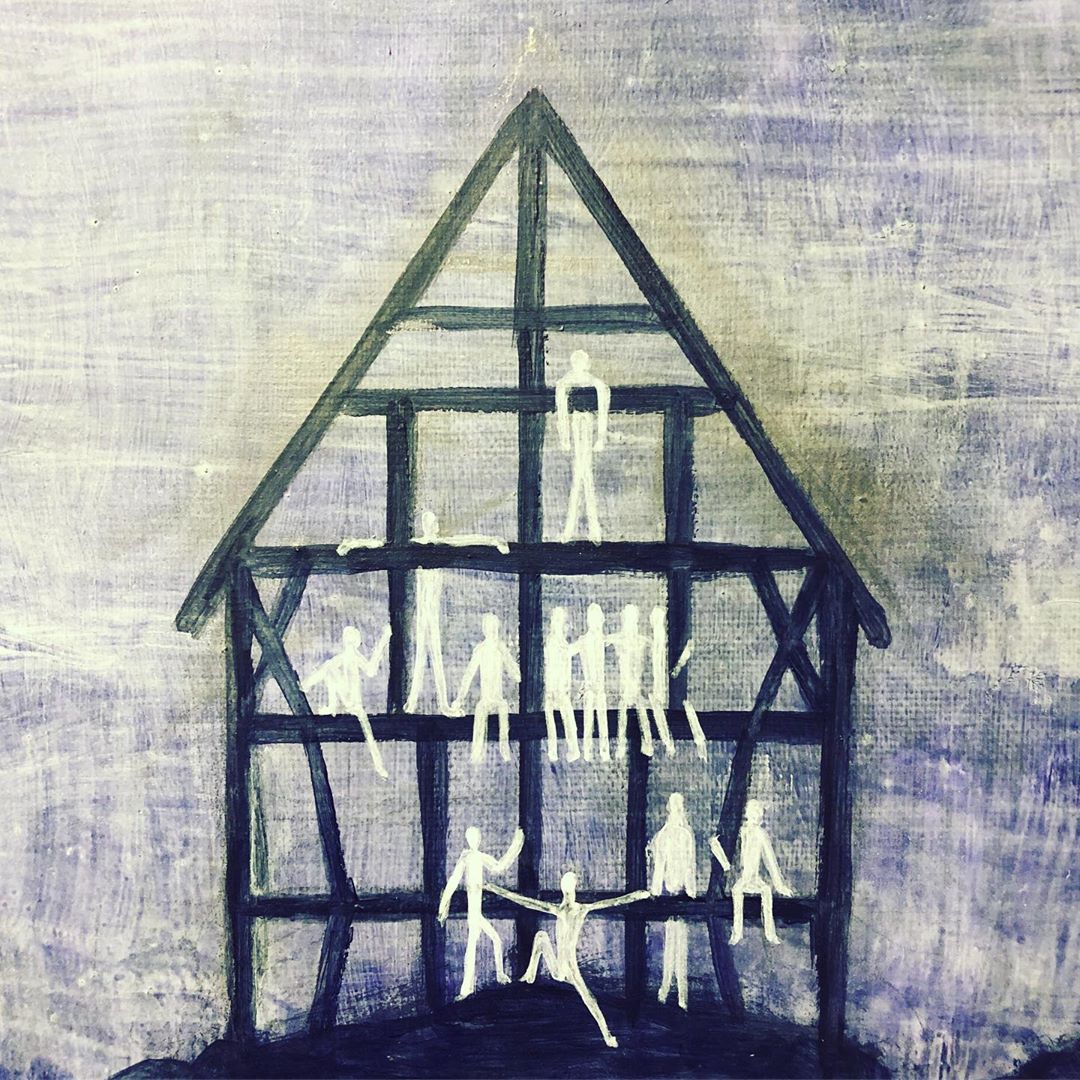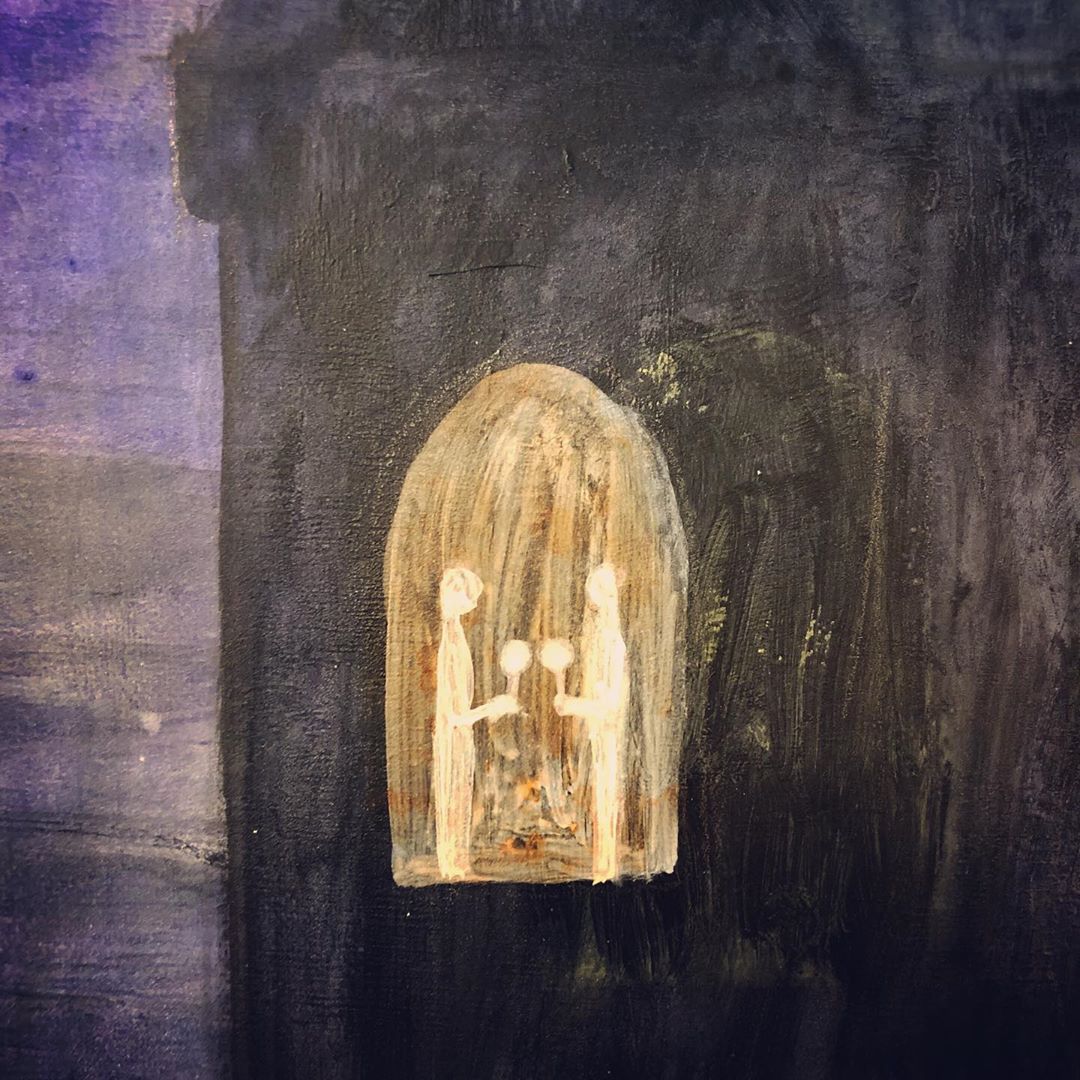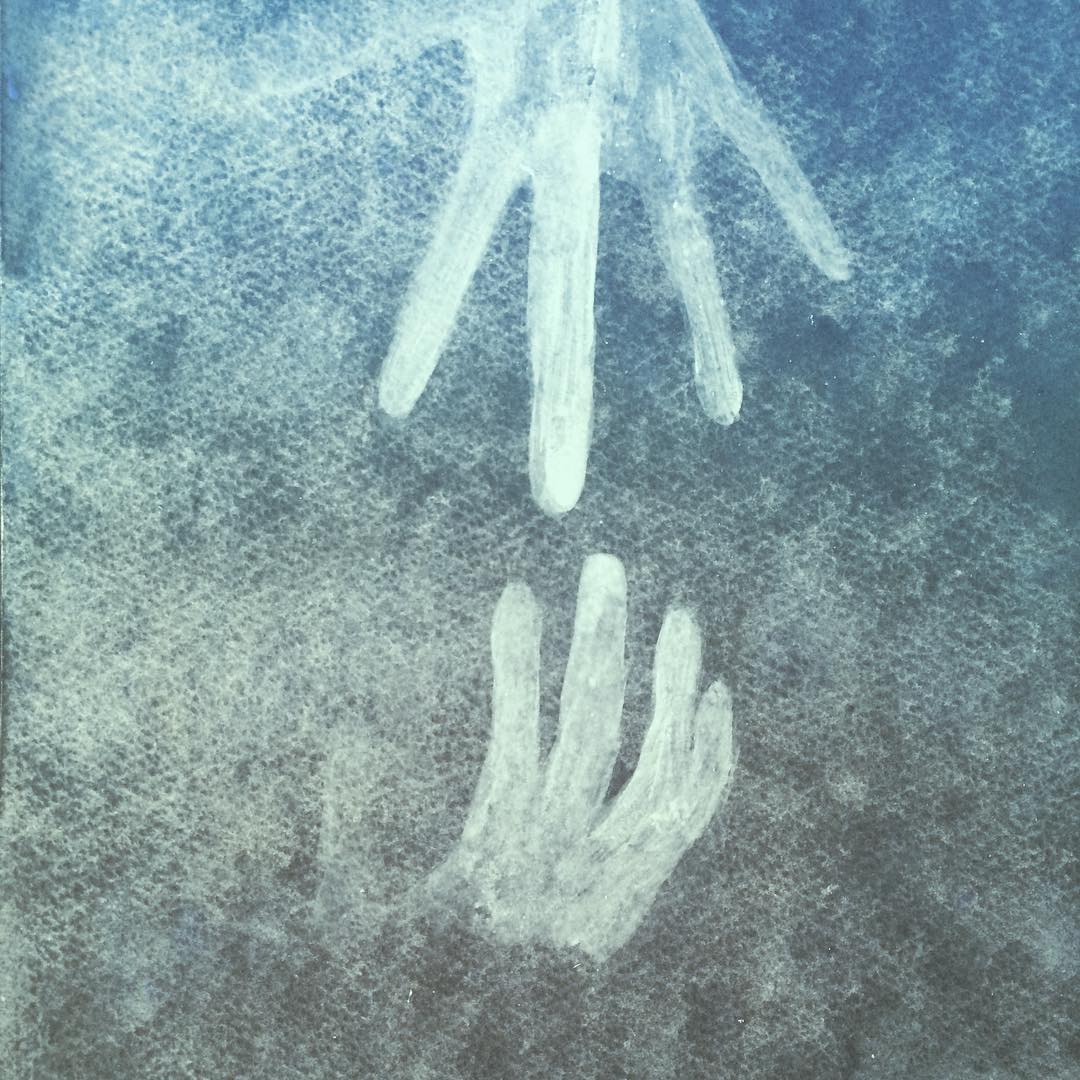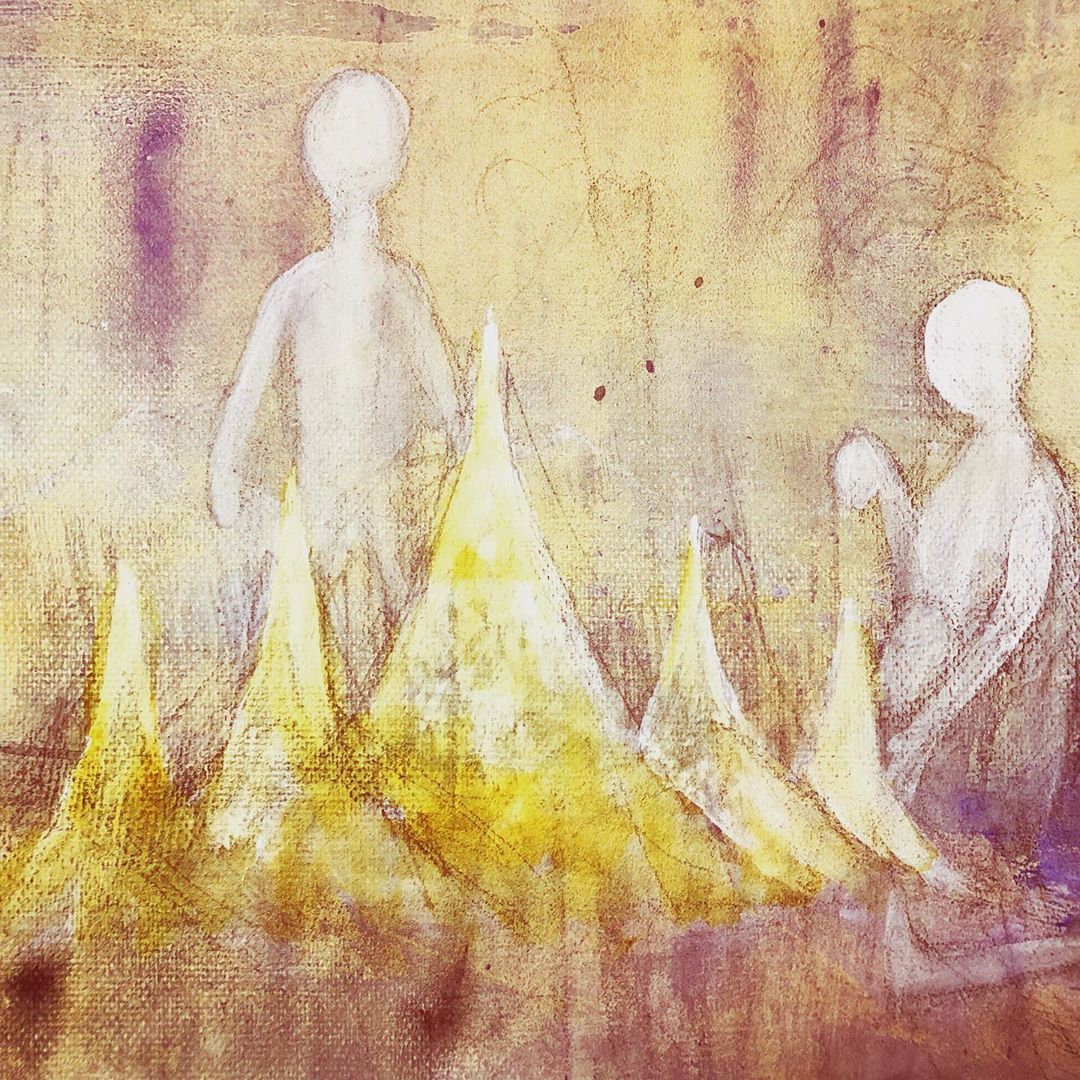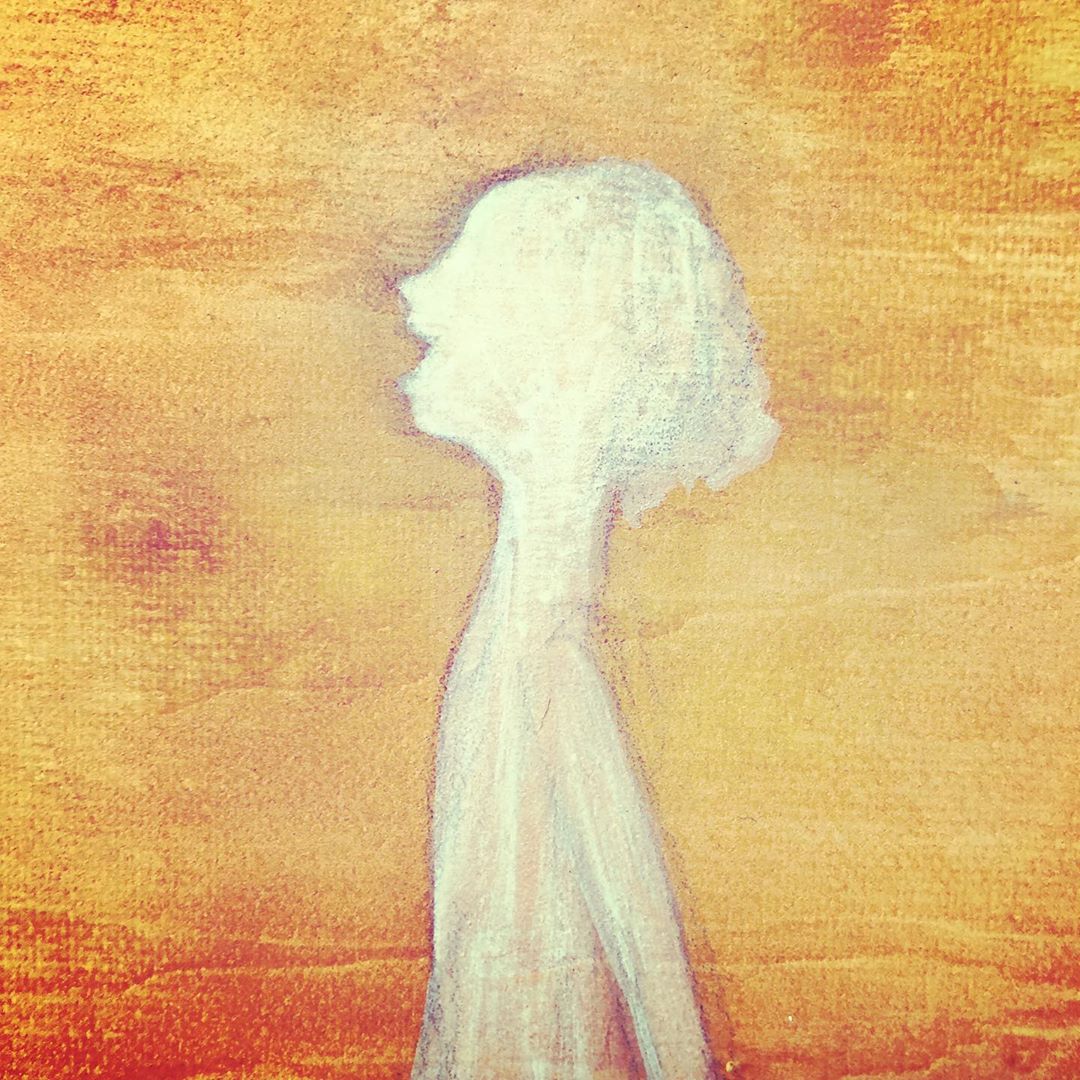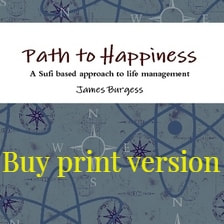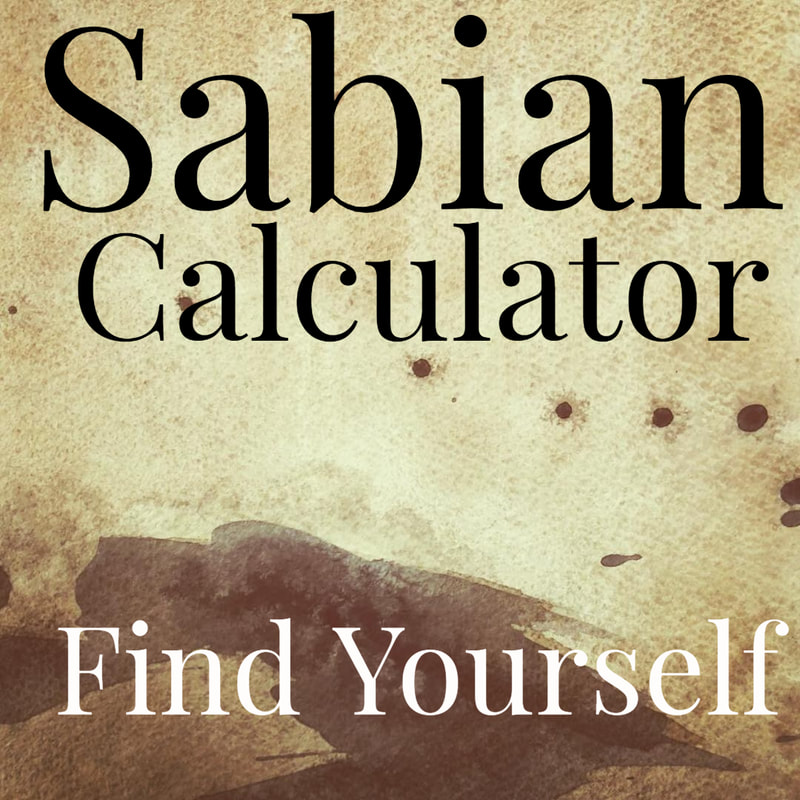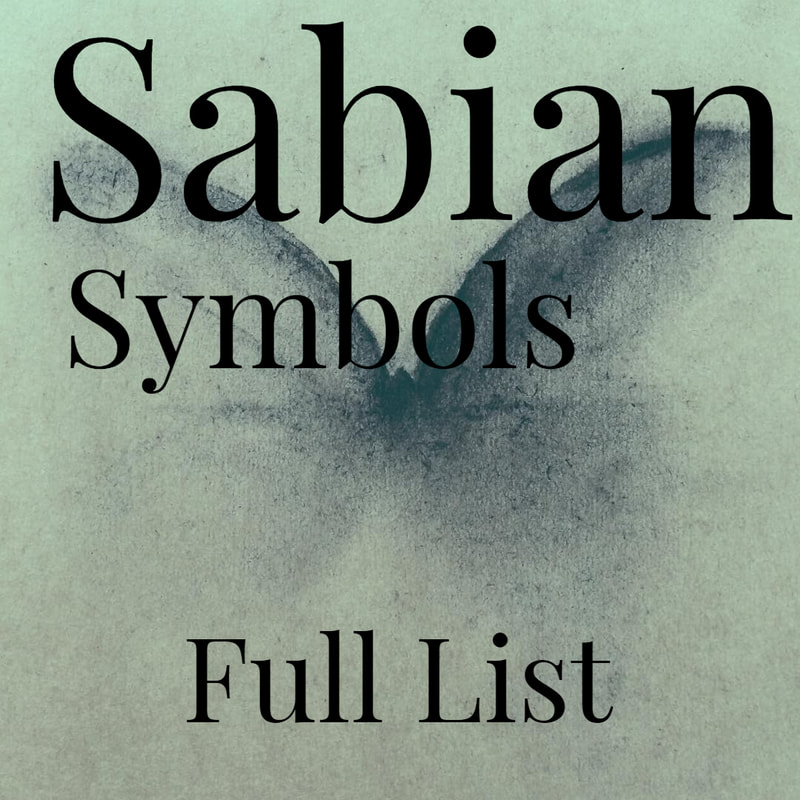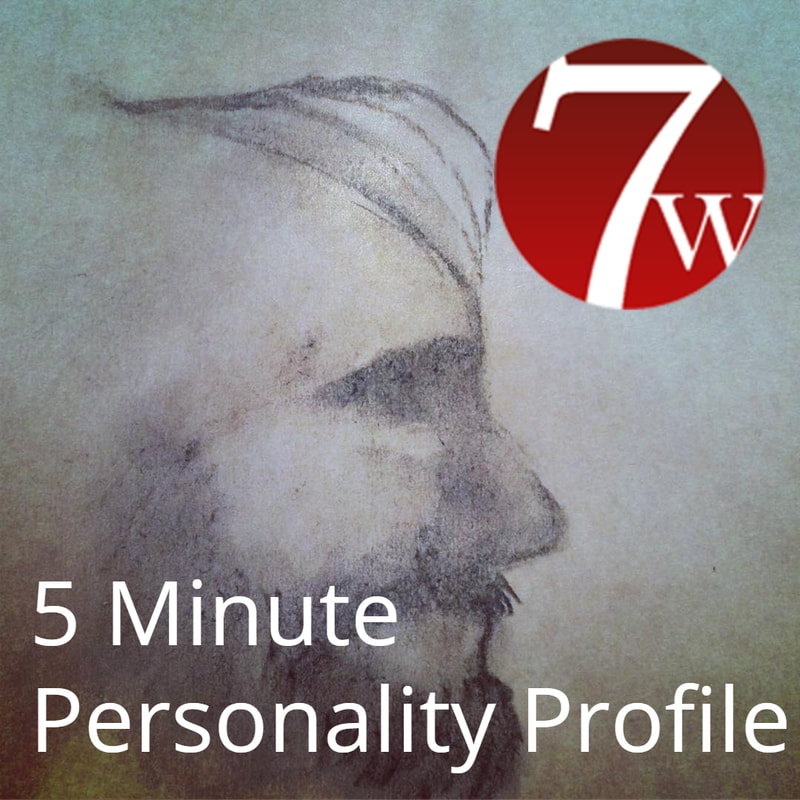Path to Happiness
APPRECIATION |
What Goes Around Comes AroundIt may be useful to remark upon the opposite principle, depreciation, and its relationship to the idea of deprecation. Putting somebody down has the reverse outcome to what is usually intended and the accuser inevitably suffers in the end. This is because we get back what we give out. In fact if we notice that someone is speaking negatively about another, we are wise to be rather objective. Such comments probably say more about the accuser than the accused. Whatever we say contributes to the life we are building so we are advised to speak only positively in the knowledge that any negativity will rebound upon us sooner or later.
|
Exchange is Not GivingIn order to refine our knowledge of what appreciation really is, we need to draw a distinction between two quite different things – the bubbling up of a lovely sense of giving that spontaneously pours out towards a person, and the strategy of exchange.
We can acknowledge that a parent funds their child’s education, and that a man offers flowers and compliments to a pretty woman. An interesting question is this – would the child still get the money if they wanted to study rock music instead of a ‘proper’ profession? Would the woman still get her flowers if the man had no desire for sex? In other words, are they showing appreciation for the person as such, or their usefulness in fulfilling our own agenda? It may be that the parents value social respectability more than their child’s creativity, and that the man puts greater value on sex appeal than personality and friendship. In such cases these gestures are not being extended to people at all; they are being given in support of generalised qualities such as sex appeal and compliance with family reputation. |
Do We Actually Feel It?There are social conventions to instruct us how and when to show our appreciation – examples include applause from the audience, presents at Christmas, the graduation ceremony and a wedding party. These are helpful and encourage us all to express what we feel. There is a danger however that we express what we are told to feel whether or not we are actually feeling it. This renders the gesture empty and insincere, and clouds our ability to know what we do actually feel. It can slowly rob us not only of our authentic expression but even our capacity effectively to feel genuine appreciation. This is not only a theoretical danger for the sad minority. A lot of people have in fact lost the awareness of the heart as that centre which registers love; they may think love and behave love, but actually they don’t feel it.
|
The Heart Must Be InvolvedThe child will accept the money and the woman will accept the flowers because that is what they are offered, but if given falsely in the name of love when the true intention is exchange then there will likely be resentment and disdain created not goodwill. The outer gestures are symbolic, they convey the implication of care, a heart-feeling, and so to show appreciation in its fullest reach there must be heart resonance, empathy and sincerity. Within this is the willingness to open up to a greater degree of emotional intimacy, implying greater willingness to respond to the other’s needs.
|
Flattery Can be WrongMany adults carry negative emotions that arose in early childhood because they were not adequately and accurately appreciated for who they truly were. These needy emotions are triggered unconsciously when they receive gestures later in life. If we offer flattery simply to fulfil our own agendas then we are using their neediness to our advantage. This is better avoided – better for them, better for us – since it never leads to a wholesome outcome.
|
If It's Real It's WorthwhileIn contrast to flattery or predetermined social requirements, a more natural behaviour would be to express what you feel in the moment you are feeling it. A smile, a touch, a gasp of pleasure, or any real expression of spontaneous joy, is worth more than an expensive piece of contractual love tax. In the first case both participants are raised up, in the second there is measurement and the strong risk of cynicism.
|
VALUING |
The Measure of LoveIf appreciation is seen as the capacity to raise in value, then valuing is the specific enactment of that capacity according to some characteristic theme of our life. Whom and what we appreciate influences the heart, and the extent of that influence is determined by what we value most. This determination may be idealised as a set of principles but it is what we practise that makes the difference. In Exchange, value is accorded to a thing by what is paid for it, which is usually money or money’s worth. But here we are studying Care and deepening of love, so coin will not do as a metric.
The measure of love is almost a meaningless idea since its perfection is surely in that it has no need for reciprocation. Yet Care can be measured in some ways, even if the final count is always subjective and intuitive. We can ask ourselves questions to find out how we are actually ranking in importance the people and things that we care about. Questions like how much time we spend, how much attention, how much forbearance we have towards them, and perhaps most importantly which way do we choose when we have to make a choice between them and others? |
Values and ChoicesOur resources are limited, and our attention is single, so choice is unavoidable. Our friends and family put pressure on us to spend time with them, so for example with whom do we spend Christmas Day? Also they have differences of philosophy and morality – should we try to avoid falling in love with someone of another social rank or religion because we are taught to do so and advised that otherwise we will suffer condemnation?
|
Considering Time and ResourcesIt can be very eye-opening to do a self-examination exercise to bring clarity to this. We can record how we actually spend our time and resources, seeing who dominates our attention, and noticing whose voice usually holds sway. It might be shocking to see in black and white quite how much of our life is spent in service of expediency and how little reflects our ideas of what principles we stand for, and what preferences we believe we have. People might say they value their children as the priority above all else, and yet come to learn that TV might get 10% of their hours, work 25%, and as little as 1% for the children. Maybe that’s acceptable, but we never hear nostalgic recollections bemoaning a life wasted through spending too much time with the kids do we?
So we can look at how we allocate our attention, time and money, and see if that is a sincere statement of how we rank the importance of our life treasures. At this stage it is enough to notice the facts of the matter and allow feelings and realisations to come to the surface. If done with a serious attitude this exercise alone will probably make a difference to improve how well the future unfolds for us. |
What We Value is What We DesireIn this action of valuing, and despite appearances, we are choosing what to value in ourselves. We are not so much concerned with others as we are their qualities – the qualities themselves. This is because they are actually also present within us and we enjoy celebrating them. How we define ourselves is actioned by the values we are drawn to in others. That is why valuing is so important – because it shapes and fulfils our desire nature. What we value is what we desire, so by showing value preferences in our appreciation we give shape to our desires. By giving shape to our desires, we add to their clarity, and therefore the likelihood and ease of speedy manifestation.
|
Desire is Creative EnergyDesire is not much appreciated by certain religious types, but this disparagement arises largely from an error in interpretation of nomenclature. Desire is not craving. It is good and wholesome to allow your passion to vibrate to its fullest satisfaction. The wisdom teachings are against need, not against the enjoyment of spontaneously doing what you want. It is not desire but craving that locks things up too tight for life to flow. Desire is a compelling energetic force that pulls together a vision and the resultant scenario, fulfilling the vision’s potential by making it substantial. It is the energy of life, the creative energy.
|
Breadth Is Not DepthWithout the idea of Value, then nothing can have greater value than anything else. We would be constrained in our capacity to feel appreciation because we couldn’t ever feel more of it. If we have ever tasted love then we want more and more of it because we value it more than other feelings.
The richness of our experiences is a perfectly reasonable measure of our existence and its worth. As we mature, so we evolve the substance of our life as we expand the width and depth of our encounters. Width is relatively easy – we do more types of things. Depth is not; we need to take new things to heart. Width and depth can operate against each other. Doing more similar things can actually make us too busy to experience them deeply. Perhaps you feel friendly with a hundred people – but are they friends? How many deeply touch our heart? Diversity does not mean profundity, and in the end it is the depth that evolves the value of life, quality not quantity. |
GIVING
Saying Thank You ProperlyGiving is an outpouring of the heart made substantial with a physical gesture. If there is any exchange at all then it is only the exchange of resonance through heart empathy; it is not giving if something is expected in return. The only appropriate expectation is that giving is met by receiving, although it is usual social courtesy to acknowledge that this receiving is taking place by saying Thanks. Thank You, well spoken, vibrates the heart centre and soothes the atmosphere.
Giving can be a very powerful event that shifts things. The box of chocolates and the long stemmed rose are meant to be extravagant in order to communicate the message sincerely that the heart is in charge of finances for the moment. Giving always costs the giver, and time is a stronger currency than money because it’s the thought that counts. The power within the event is in its ability to make the receiver feel genuinely appreciated and cared for. |
Giving is an Aspect of LoveThe sad fact of the situation today is that anything having a natural spiritual aspect will be bent out of shape by economic and political processes – in other words greed and fear. These two motivations are heavy, they cannot sustain the lightness and spontaneity required to bring Giving to its exaltation. A truly blessed moment of grace occurs when one gives freely and unthinkingly to another and each feels raised by the special warmth of sincerity that arises.
Giving is an aspect of love; it is an enactment of love, and it must occur in an atmosphere of love or it is not real. Typically that which is given is in response to some scenario immediately unfolding, so therefore an important part of the gesture is timing and applicability. Some things are entirely diminished or inappropriate if given too early or too late, so a part of the gift is the demonstration of knowing when it is best presented. |
Giving Creates and Atmosphere of KindnessThere is a distinctive atmosphere associated with Giving; it tends to be one described by wide smiles, gentle touch and warm tones, often with laughter and exceptionally, even tears. In fact a gift that brings tears can be the very best of gifts – since the depth of a gift is in the atmosphere that accompanies it. It is an atmosphere of healing, which unburdens the anxieties of the soul and allows greater relaxing of stressful defences. When this atmosphere is co-created by both giver and receiver, then each feels better off. The receiver needs to be elegant and gracious not timid and self-deprecating. A mendicant illustrates this, the mastery of receiving.
|
Giving is a Spiritual PracticeIt is understood by the dervish that Giving is a type of spiritual practice. In learning how to master the spiritual condition of Care, an aspect of our training is the perfecting of Giving. It is best perceived as a type of energetic radiance emanating from the heart centre and causing a magnetic shift in the psychic field of energy. This magnetism is often called charisma and is seen as a quality of the person – but it is much more than that, it is an expression of power that shifts realities.
|
Giving Facilitates AbundanceOne primary understanding is that perfecting our giving inevitably attracts more giving, so we can even free ourselves of the need to be paid. This freedom is thoroughly empowering for a seeker. Seek out beggars and make sure you make eye contact as you give kindly from the heart. This is not a religious teaching about morality; it is not a metaphor either. It is a specific literal instruction that will teach you how to master Giving and thus to some extent free yourself from the need to earn. By doing what the heart loves, we attract what the body needs. The dervish is also aware that his receiving enables another’s giving; this is a type of self-sacrifice by the dervish because the merit goes to the giver. He knows that all that is required to bring balance to Giving is Appreciation, and that saying Thank You properly involves the heart.
When Giving is embraced completely, as if it were woven into our character as deeply as love itself, then we become conduits for the flow of abundance and enjoy a rich life, populated by those who feel rich and appreciative themselves. So we would then see Giving not as an action but as a presence that shows in the mastery of abundance. |
The Magick of Affirming AbundanceIt is because we behave as if we were rich that we become rich. This is such a difficult lesson for us to learn – yet well illustrated by this true story. Rosie wanted to participate in one of Findhorn’s introductory weeks but couldn’t persuade them to take the smaller sum she felt she could afford. They told her to really believe that the money would come. Trusting this, and in good faith, she wrote a cheque for the large amount having insufficient funds in her bank account to cover it. Then two odd things happened. The bank accidently credited her account with the exact same amount on the exact day the cheque was presented for payment. Weeks later, on the day she got the letter asking for it back, she saw a newspaper article about a similar situation elsewhere where another bank had claimed for repayment and lost its case. So she returned their letter and sent off the article with it – and heard nothing more from them ever again.
|
LOVE
Sometimes Fear is HelpfulIt is not realistic, nor is it appropriate, to expect to live our lives without fear. Fear has an awful reputation, and yet it is what saves us from forces that could and would deny our individual existence. It is entirely appropriate, at all costs, to avoid merging with entities that have no intention or ability to care for us – and fear of such entities is a true protection; it is a communication that tells us we need to escape. Even in modest day-to-day situations only some of what is offered is good for us, so some caution is indicated in all interactions.
Fear has also the ability, through metaphor, to awaken insights into the beliefs we hold. The specific fears we have describe something of the way in which we have adopted limiting beliefs. Perhaps claustrophobia is indicative of feeling unable to expand our lives enough, perhaps fear of heights suggests the opposite. The intensity of the fear gives a clue to show how powerfully liberating it will be when we have grasped its origins and reoriented to adopt its allegorical wisdom. |
Love is the Opposite of FearHowever, when caution is thrown to the wind, then what bubbles through is love. It is trusting and innocent, seeks to harmonise and share, and is inherently optimistic and expansive. The register of Love is most intensely felt in the heart centre as the movement from urgency towards self-annihilation in blissful union, and of course it feels lovely. We can observe the power and urgency of love expressed as much in a baby’s irrefutable desire for mother as in the hot attraction between lovers. Both couples demand the fullest intimacy with the object of their heart’s yearning for union.
A person whose heart centre is open cannot fail to radiate joy and warmth generally. The radiance is seen and felt by others within the atmosphere of the person, who is inevitably well liked, trusted and sought after. They can also focus this energy as a healing force by directing it at another person. Any parent has learned to comfort a child after a minor bump or scratch by ‘kissing it better’; it actually works. Love attracts; it is a magnetism that draws to it whatever has a similar quality. People are attracted to us because they have some love for the qualities they see in us and admire, as of course we are attracted to them for similar reasons. |
We Cannot Love EverybodyWe are mostly conditioned by religious teachings that we should love everybody. Then when unsurprisingly we find we cannot, we will possibly feel guilty or inadequate as a person. But in fact we cannot love everybody. Some should be feared and excluded from having any influence over our children or indeed anyone we love, including ourselves.
Love is a force, a power, and it must be employed with some awareness of its effect. Directing the radiance of our love upon another will shift their attention, influence their condition, and may significantly impact their lives. This clearly needs to be done with some awareness of the responsibility we have not to manipulate others against their best interests. Offering sex, food, or pretty things, as an incentive to attract and keep a mate will not optimise the likelihood of authentic love and is more likely to block it. What will generate love is love. If we constantly look for its Source in our mate, then we will be loved. |
Sentimentality is the Enemy of LoveSufis teach that love’s enemy is sentimentality. This is very instructive. It is the distortion of a principle not its counterpart that is its enemy. Sentimentality distorts love. That which is genuine and spontaneous is authentic and without agenda – these are love’s qualities – whereas sentimentality is prescriptive, manipulative and imprisoning like fear. Romance novels, slushy movies, fairy stories and porno sites share the same basic elements of sentimentality. They create unreasonable expectations and bring judgemental structure to what must remain unconditioned.
|
Expectation Leads to DisappointmentBy a very large margin, the most popular topic for people to consult counsellors about is the love that they are or are not experiencing in sexual partnership. Whatever we may want to think, their own Love Story is the topic that most people care about most of all. And for them the love is always somehow wrong. It is either absent, imperfect, abusive, shared with a rival, hidden and never expressed and so forth. Very few people are completely contented with their relationship’s current status – and it is always the other person’s fault!
The main issue seems to be the difference between what is expected and what is received. Changing expectations and showing more appreciation goes a long way towards improving the situation – together with having clear boundaries consistently enforced. Sexual partnership is inevitably going to trigger old hurts from childhood and expose both partners, usually simultaneously, as being less mature, less loving and more selfish than they would like to believe about themselves. This is not likely to support peace and happiness. And this is the exact point. Love relationships are better approached as serious social contacts rather than fantasy-fulfilment birth rights. The difficulty we have discussing early intentions and later problems, often arise as a direct result of sentimentality. Programmed to think that ‘love conquers all’ and that we should expect to ‘live happily ever after’ sets us up for disappointments and a blameful attitude. Anyway it is problematic discussing something that is so poorly described as Love, which lacks clarity and accurate definition. |
Understanding What Relationship IsAs a serious social agreement, relationship has to accommodate difference of outlook and expectations on most major life issues. These include sex, money, where to live, how to socialise, spiritual practice and belief, diet, sharing housework, involvements with each other’s families, which drugs are allowed, which TV channel to watch…and so on. All these, and then on top of it all the biggest – whether and how to raise children.
In fact one-to-one relationship is a very demanding life track, a tricky socio-economic alliance with occasional flurries of joy and sorrow. Through them we learn who we are, our strengths and weaknesses, our idiosyncrasies and prejudices, and where we stand on important matters. It is foolish to expect that our partners can compensate for our own inadequacies or save us from facing the feared and painful feelings that still haunt us from childhood. We have to deal with them ourselves, and with luck our partner will have understanding and patience while we do. To make relationship work, it is helpful to show constant care and concern, be expressive of appreciation for those things we are grateful for, and frequently offer small, sincere gestures of thanks. |
Understanding What Love IsLove can grow in the heart of a sincere devotee of spiritual practice. This could be through prayer and worship but it doesn’t need to be. We don’t have to follow anyone’s ideas about what is spiritual, as long as we know ourselves. By appreciating things of beauty and by living in harmony with Nature and neighbours, then love will arise. It comes gently and surreptitiously, without the flash bang of romance. We notice its presence by the small things. We enjoy others being happy; we get excited by the rain and snow as well as the sun; we react less belligerently to injustice, we learn how to get lost in music and dance, and our eyes look for, and so find, proof that life is good.
This is the love that needs no companion. It is simultaneously self-love and love of life. It is tolerant, forgiving, humorous and light, yet also reliable, strong and steady, is not needy and demanding but feels abundant and kind. When we have this type of love to offer, then our beloveds feel more recognised, cared for and safer, more alive and free from imposition; together we feel joyful, yet apart we feel joyful too. |

